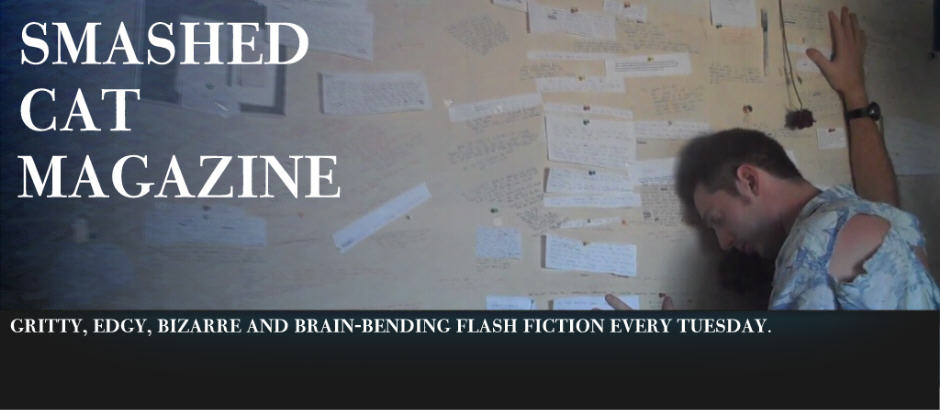Posted by E.S. Wynn
Infant
By Matthew Antonio
Though his hands couldn't reach the keyboard, nor could his feet reach the ground, little Samuel was obligated to sit in his office chair in his cubicle in front of his computer for eight hours a day. At each opportunity he explained to anyone who would pause at his station, usually Hannah or Camilla, the two coworkers whose cubicles flanked his, that he was, in fact, an infant and incapable of performing the mental, physical, and even emotional tasks required to maintain employment as a data processor. His mind was so unformed, he proclaimed, that he could barely remember shapes and colors, much less the complex systems needed to turn one form of information into another. He also believed that his inability to remember how he came to his position could be firmly blamed on his tender and soft mind.
One day Samuel formed a plan. Before lunch he told Hannah and Camilla there was a special birthday surprise at lunch in the break room and to spread the word. He would have done so himself except he could only move at a crawl and the task was, for his tender knees on the gray, industrial carpeting, a bit much. Even when lunchtime finally came, the journey first to the ground, then to the break room, then into the hard, plastic chair at the head of the table exhausted him and made
him wish someone was there to kiss his bruised knees with soft lips, to sing to him in gentle tones, to hold him no matter how his untrained and uncontrollable body discouraged anyone from doing so.
He pushed himself up, his arms propped on the table to give the illusion he could stand. Samuel thought it important to present himself from a position of power.
“I am,” he said, “an infant. Though you've entrusted me with a particular set of responsibilities and, from what little I am able to recall, I am not wholly unfit for these responsibilities, you must remember that in the end, I am an infant. Perhaps it's my easy familiarity with new employees or even the sociable way with which I engage clients and coworkers alike. Perhaps it's something else. I don't know. I'm an infant.
“What I would ask of you, all my dear friends and associates, is to remind yourselves that I am incapable of behaving the way you do. When I am presented with affection, I adhere to it. When I am deprived of pleasure, I bawl. When I am incapable of caring for myself, I require care. You are men and women. I am an infant.” Samuel slumped down into the chair. “I can't tell you how sorry I am,” he said.
Samuel watched the assembled group and observed slow understanding come to each of them. They saw he was someone to be measured in inches, not feet, his age gauged in months, not years. As each person came to this realization, that person's expression rapidly changed to disgust and then he or she quickly evacuated the break room. Even Hannah and Camilla followed the exodus until the last person, a minor functionary used for odd tasks, a woman whose name Samuel never learned or learned and had fallen out of his soft head, turned off the lights and pulled the door closed behind her. He tried to follow, but the knob was too high.
- - -
Matthew Antonio lives in Fort Collins, CO where he attended Colorado State University's MFA program in Fiction. He has recently been published in L'Allure des Mots, Stanley the Whale, Dogzplot, Gone Lawn, and Z-Composition. He is the Assistant Fiction Editor for em: A Review of Text and Image and operates www.littlemachines.net.













